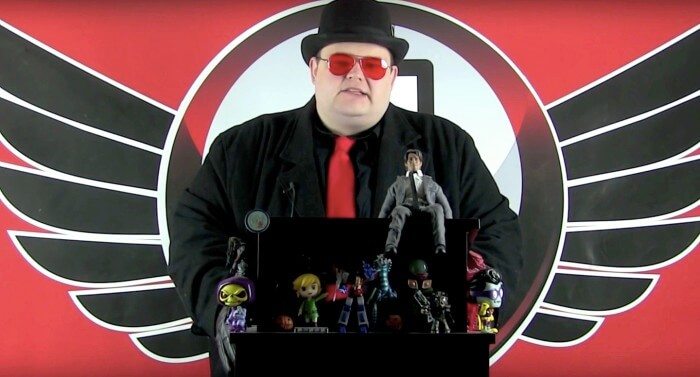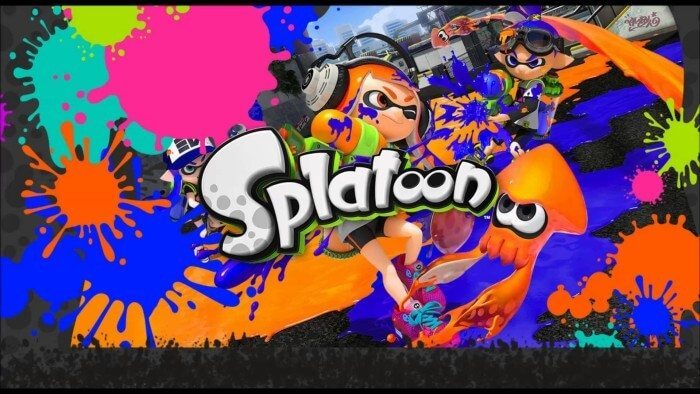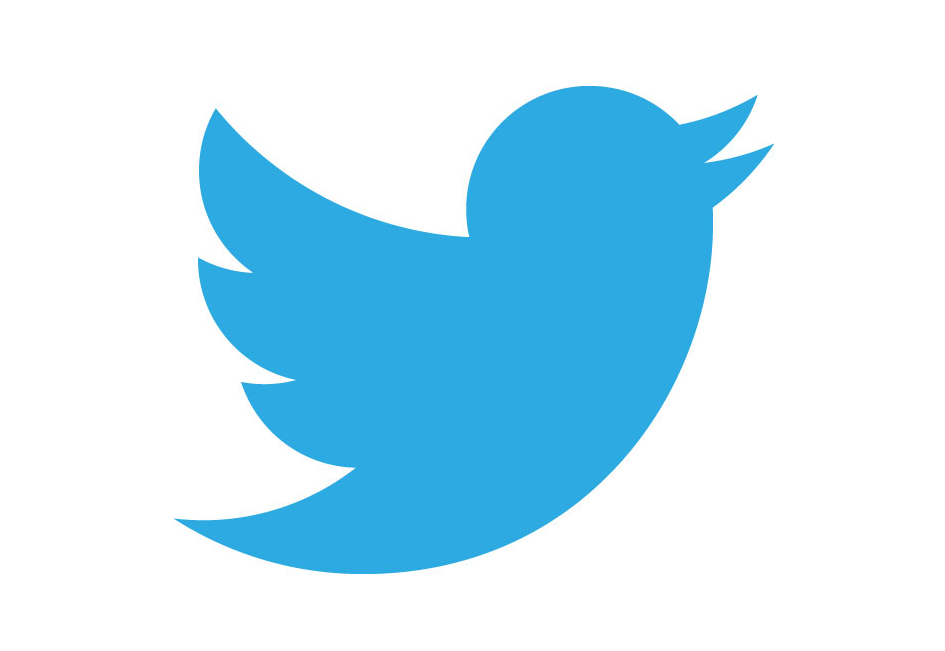The New Battleground for the Freedom of the Press
On 16 March the industry awoke to discover that a minor indie developer by the name of Digital Homicide had filed a $10 million lawsuit against James Stanton, better known as the outspoken video game critic Jim Sterling.
This lawsuit comes after over a year of mounting antagonism between the two parties, in which Sterling has held the developer up as the poster child for the negative aspects of Steam’s community managed publishing platform, Greenlight. In response, Digital Homicide have, in the past, attempted to remove Sterling’s negative criticism from Youtube by exploiting its copyright takedown system, as well as threatening lawsuits on numerous occasions.

Sterling, pictured here during a recent episode of The Jimquisition, faces a lawsuit of over $10million. Image: Jim Sterling / Youtube
This isn’t anything particularly new for the industry, and DH aren’t the first to clash with Sterling over his criticism of their games, with the likes of Kobra Studios also filling false takedown notices against his videos. Yet Digital Homicide have taken the matter further than most developers dare, following through on their threat and filling a lawsuit against Sterling for “assault, libel, and slander”, claiming that Sterling “falsely accused [Digital Homicide] and caused damage” to the company, thus entitling them to damages.
It’s proved a surprising twist in a long and fascinating conflict between the two groups; one that you can read about in more detail here. However, while the specifics of the case are interesting, it’s the wider notion of the lawsuit, as well as the mentality fuelling it, that proves most intriguing, and has the potential to cause significant damage to the industry as a whole.
Companies do not have the right to censor or restrict media simply because it is critical of them
Regardless of how aggrieved Digital Homicide may personally feel by Sterling’s criticism of their work, it should be recognised that this lawsuit has been filed for one explicit purpose; not to recuperate the implied financial damages of Sterling’s actions, but to silence his criticism of their work altogether. Quite simply, Digital Homicide don’t like the bad press Sterling gives them, and want it gone. While problematic, they are not the first developer or industry figure to have attempted such measures, and these actions, while underhand, aren’t all that surprising for small and often impressionable indie developers operating within the realms of places like Greenlight. However, these actions become a much greater cause for concern when the likes of Konami attempt to censor criticism of their titles, which they did to the Youtuber Super Bunnyhop following his video on Metal Gear Solid V.

Konami is guilty of censoring reports regarding their fallout with Metal Gear Solid creator Hideo Kojima. Image: Konami /PressXtra
When developers and publishers decide to control the flow of information released to the general public, be it the likes of Konami, or Nintendo and their content ID claims, they directly impede the right to freedom of speech that these content creators possess. In any other industry, such a practice would be vehemently condemned, and yet within the games industry many seem unfazed by the notion that developers and publishers are able to prevent the distribution of information or negative press. However we must see the situation for exactly what it is; a new battleground emerging for the freedom of the press, threatened by overzealous corporate control.
The main battleground for this conflict appears to be Youtube
The main battleground for this conflict appears to be Youtube, and this comes down to the ambiguous nature of content on the platform itself. Youtubers are not often considered journalists in their own right and thus are not afforded the same protection that they might see working for press publication. To add to this, Google itself is still attempting to define what does and does not constitute ‘fair use’ of intellectual property on a digital platform, further exacerbating the problem. While Google now seems to be siding more and more with Youtubers over the use of game footage etc., the system is still left open for abuse by companies wishing to censor criticism, and the differences in licensing and fair use laws around the globe only serve to compound this.
But regardless of platform or medium, we must begin to recognise that companies do not have the right to censor or restrict media simply because it is critical of them or their products; to do so is to deny consumers’ access to legitimate critical opinions that ultimately influence their purchasing decisions, and this is unacceptable. We would not tolerate it on any other platform, and we should not tolerate it in the gaming industry. Even if you personally dislike Sterling and his work, you cannot deny that the lawsuit he faces is questionable in its motivation and damaging to his work as a critic and a journalist – a motion that should not be replicated.

Nintendo’s content ID claims have seriously impacted the revenue of many gaming channels. Image: The 1 Hour Songz /Youtube
Freedom of speech and freedom of the press sits at the very heart of journalism, and while the work we see on platforms such as Youtube does not fall into what we’re used to regarding as journalism, they are pieces of journalistic work nonetheless, and should be protected as such. Whether large or small, developers and publishers must respect this, and it is up to the likes of the general public as much as it is up to the courts to defend these journalistic works from censorship.
It’s essential that we do all that we can to protect our rights
The Sterling/Homicide case will no doubt set a precedent for such cases moving forward, provided it ever actually makes it to court. If Digital Homicide were to win such a case, the precedent would have dangerous implications for the rights of content creators and journalists in the industry to freely express their opinions.
With this in mind, it’s essential that we do all that we can to protect our rights, else we risk losing them altogether.
___
 What’s your take? Let us know @Boar Games
What’s your take? Let us know @Boar Games

Comments (1)